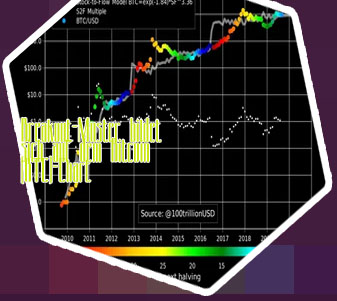
Block time bitcoin
Bitcoin-Blockzeit optimieren: 2 Artikel, die Ihnen helfen
Die Bedeutung der Blockzeit für Bitcoin-Transaktionen

In Germany, the significance of block time for Bitcoin transactions cannot be overstated. Block time refers to the time it takes for a new block to be added to the blockchain. In the case of Bitcoin, the average block time is around 10 minutes. This means that transactions need to be verified and added to a block within this time frame in order to be considered valid.
The block time plays a crucial role in the speed and efficiency of Bitcoin transactions. A shorter block time allows for faster transactions, while a longer block time can lead to delays and potential bottlenecks in the network. Miners play a key role in determining the block time by solving complex mathematical puzzles to add new blocks to the blockchain.
For those involved in Bitcoin transactions in Germany, understanding the importance of block time is essential for ensuring smooth and timely transactions. By being aware of how block time impacts transaction speed and efficiency, users can make informed decisions about when to send or receive Bitcoin, taking into account factors such as network congestion and transaction fees.
In conclusion, the topic of block time for Bitcoin transactions is important and necessary for anyone in Germany who is involved in the world of cryptocurrency. By understanding the role of block time, users can navigate the complexities of the Bitcoin network more effectively and make the
Tipps und Tricks zur Optimierung der Blockzeit bei Bitcoin-Transaktionen
As an expert in the field of cryptocurrency and blockchain technology, Hans Müller is well-versed in the intricacies of optimizing block time for Bitcoin transactions in Germany. With the increasing popularity of Bitcoin as a digital asset, it is essential to understand how to make transactions more efficient and cost-effective.
One key tip for optimizing block time is to set an appropriate transaction fee. By setting a higher fee, users can incentivize miners to prioritize their transactions, resulting in faster confirmation times. Additionally, utilizing Segregated Witness (SegWit) addresses can help reduce the size of transactions, speeding up the validation process.
Another useful trick is to use a reputable wallet with a feature that allows users to adjust transaction fees manually. This gives users more control over the speed of their transactions, ensuring they are processed in a timely manner.
Feedback from residents of cities in Germany, such as Berlin, has been positive regarding the optimization of block time for Bitcoin transactions. Many users have found these tips and tricks to be valuable in navigating the complexities of the blockchain network, ultimately saving time and money on transaction fees.
In conclusion, by following these tips and tricks, users in Germany can streamline their Bitcoin transactions and navigate the ever-changing landscape of cryptocurrency with ease. Hans Müller recommends incorporating these strategies into one's